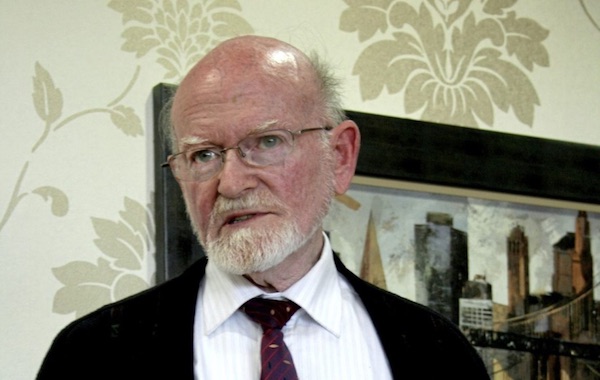
A former Official IRA Volunteer has been questioned about an attack on the British Crown Forces which took place almost 60 years ago after he wrote a historic account of the incident.
Mick Ryan was a leading figure in the IRA’s border campaign of the 1950s and was at one time the organisation’s ‘director of operations’.
It is believed that the approach at his home in County Louth represents the oldest interrogation in relation to any IRA activity. It is also the first time the IRA’s border campaign of the late 1950s have been subject to a legacy investigation.
On Tuesday two Garda detectives called to Ryan’s home to make inquiries on behalf of the the PSNI. They asked questions about matters including the IRA attack on the B-Specials police at Ballsmill in 1959.
In his book, ‘My Life in the IRA - The Border Campaign’, published last year, Ryan gives a detailed account of his life in the republican movement. In his book he claims the late former IRA and RSF leader Ruairí Ó Brádaigh said they needed to organise an attack on the Crown Forces in Newry.
A mine attack subsequently took place on a B-Specials patrol at Ballsmill in Crossmaglen. The IRA team also opened fire after it was detonated.
Mr Ryan gives a detailed account of the preparation, execution and the aftermath of the attack, in which two members of the B Specials were injured.
The book describes the attack in detail: “The jeep was hit all right, because I could see some parts of it fly into the air and land a few yards away.”
It then describes the IRA returning back across the border to the 26 Counties. When the book was first published last year, unionists said Mr Ryan should be brought before the courts.
Originally from Dublin, Mr Ryan, now aged in his eighties, lives in Dundalk with his wife. He spent a year interned at the Curragh camp in the 1950s and returned to IRA activity upon his release. After the split in 1969, during which the Provisional IRA was formed, he remained with the Official IRA, holding leadership positions.
The ‘investigation’ is an apparent counter to inquiries into war crimes carried out by of British soldiers. A campaign by backbench Tory MPs at Westminster for a general amnesty for the British Army appears close to achieving its goal.
Campaigners for the soldiers have pointed to the passage of time and the age of those involved as a justification for any future amnesty. Victims, meanwhile, have pointed to the length of time they’ve waited for justice.
After decades of campaigning, a recent decision that only one British soldier who was present on Bloody Sunday -- Soldier ‘F’ -- should stand trial for involvement in the massacre came as a shock to families of the victims. It also reignited a campaign for a blanket legal amnesty for British soldiers, regardless of the atrocity they are accused of.
Britain’s new defence secretary Penny Mordaunt made proposals on Wednesday for a statutory “presumption against prosecution” for veterans for alleged offences committed than 10 years ago, which she said should include Ireland. The plan would mean a general amnesty for all killings by the British military in the Six Counties.
Speaking to the Dublin parliament this week, the 26 County Foreign Minister Simon Coveney described Mordaunt’s remarks as “loose comments” that could be “damaging in terms of trust”.
He said he expected London to uphold commitments it had already made under the Stormont House Agreement of 2014.
![[Irish Republican News]](https://republican-news.org/graphics/title_gifs/rn.gif)
![[Irish Republican News]](https://republican-news.org/graphics/title_gifs/harp.gif)

